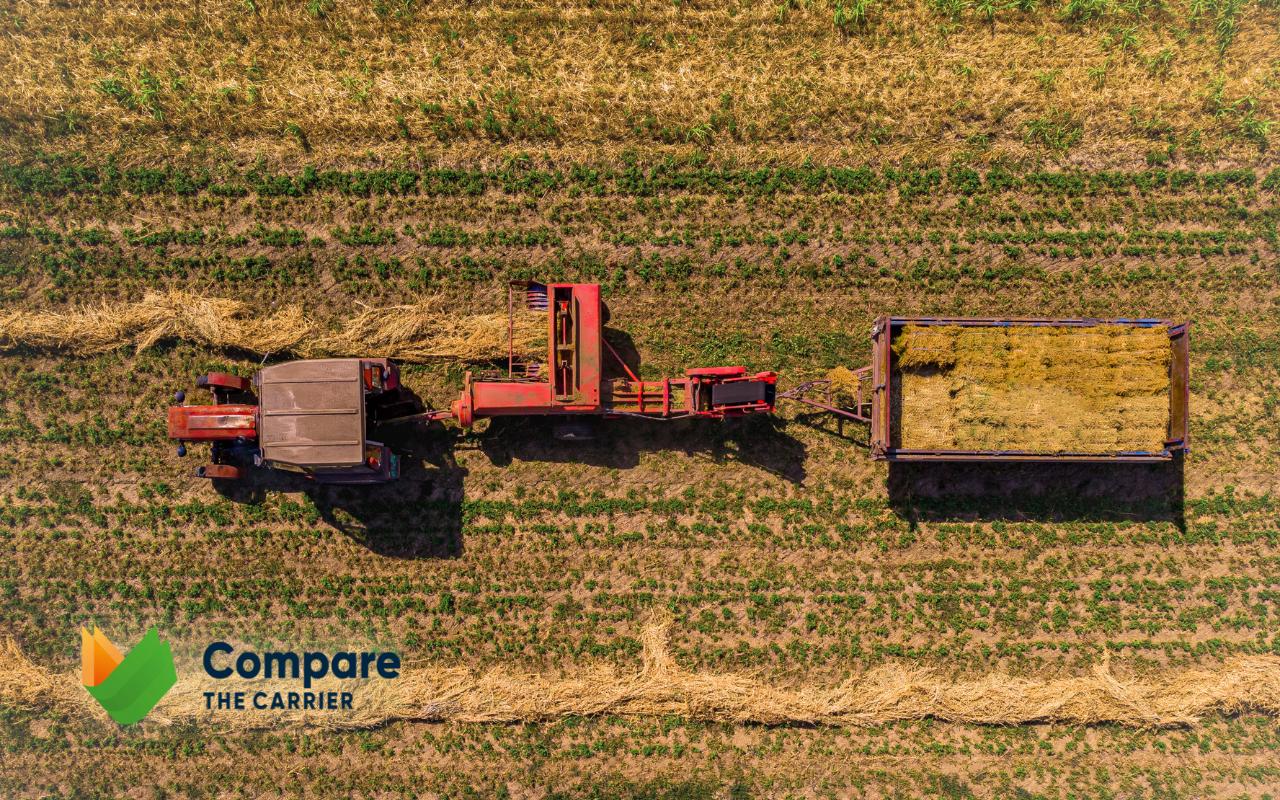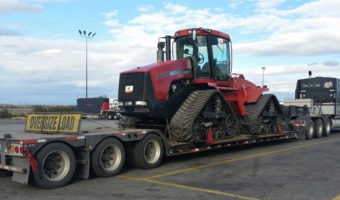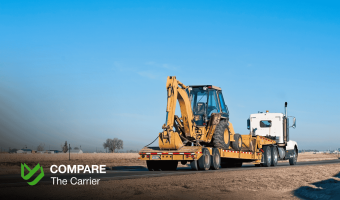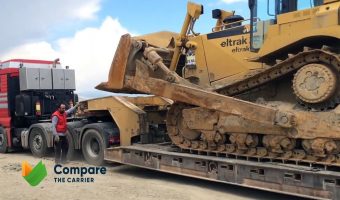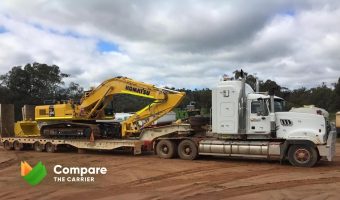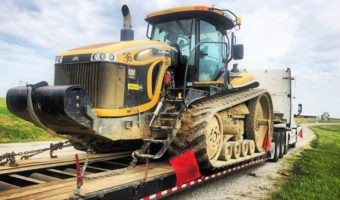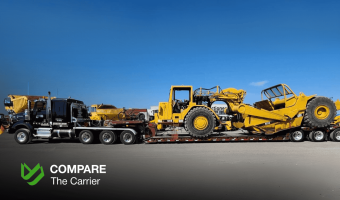Transportation plays a pivotal role in the agricultural industry, whether it’s the movement of tractors, harvesters, or other bulky machinery. The safe and timely delivery of these machines is crucial, but moving them through rural routes can present quite a challenge. Narrow, twisty roads, coupled with rough terrains and safety concerns, make rural transportation a daunting task. In this article, we’ll dive into these challenges and provide some practical solutions for a hassle-free journey.
Significance of Effective Transport in Agriculture
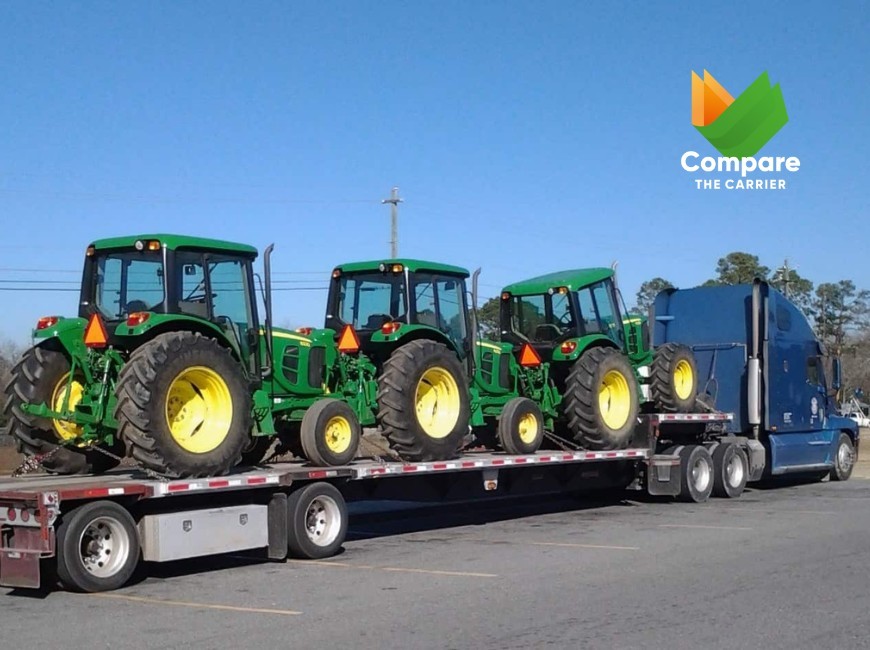
The key to agricultural success often hinges on effective transportation. Safe and timely transport of farm equipment, livestock, and agricultural products is vital to the smooth operation and profitability of farms and ranches. From the planting and harvesting stages to the market-bound transit of goods, agricultural product transportation is a cornerstone of the entire supply chain.
One of the core benefits of effective transportation within agriculture is enabling farmers and ranchers to swiftly and efficiently deliver their products to the market. This not only amplifies their profits but also significantly bolsters their bottom line. Additionally, well-planned and executed transport can dramatically minimize waste and spoilage by ensuring products reach their destinations safely and promptly.
Moreover, effective transportation stimulates rural economies by creating job opportunities and supporting local businesses. Many small towns and rural communities heavily rely on the agricultural sector for their sustenance, and dependable transportation is an integral component in bolstering these businesses and fostering economic growth.
In a nutshell, the importance of effective transportation in agriculture is paramount. It’s the lifeblood for the successful operation and survival of farms and ranches and plays an instrumental role in bolstering local economies and communities.
Decoding the Rural Route Challenges for Farm Equipment Transport
Hauling farm equipment through the intricate landscape of rural routes presents a multitude of unique challenges. These need to be adequately addressed to promise a safe and efficient voyage. Rural routes frequently come with their fair share of narrow, winding pathways, low bridges, sharp turns, and uneven terrains. Furthermore, the transport of heavy machinery significantly amplifies the safety risks for drivers and others using the road. Here’s a breakdown of some primary challenges you might encounter during rural route machinery transportation:
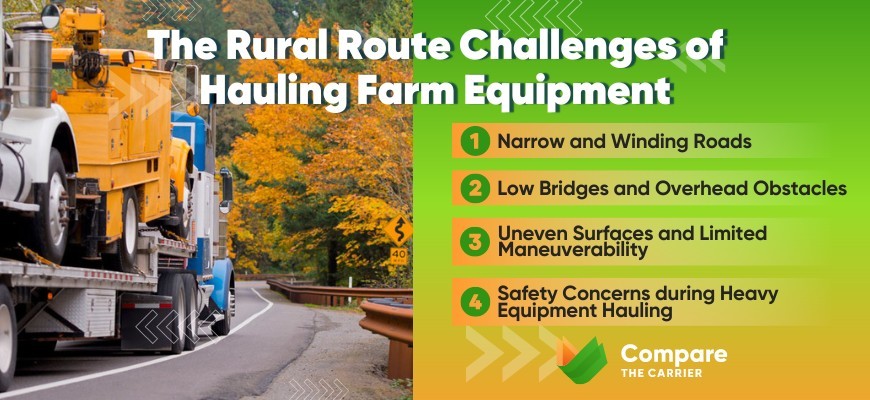
Addressing these hurdles requires meticulous planning and preparation to guarantee a safe and seamless journey. In the following sections, we will discuss various strategies for efficient and safe agricultural machinery transport.
Strategies for Efficient and Safe Agricultural Machinery Transport
While rural routes pose several challenges for farm equipment transport, there are methods to make the process safer and more efficient. Here are a few key strategies:
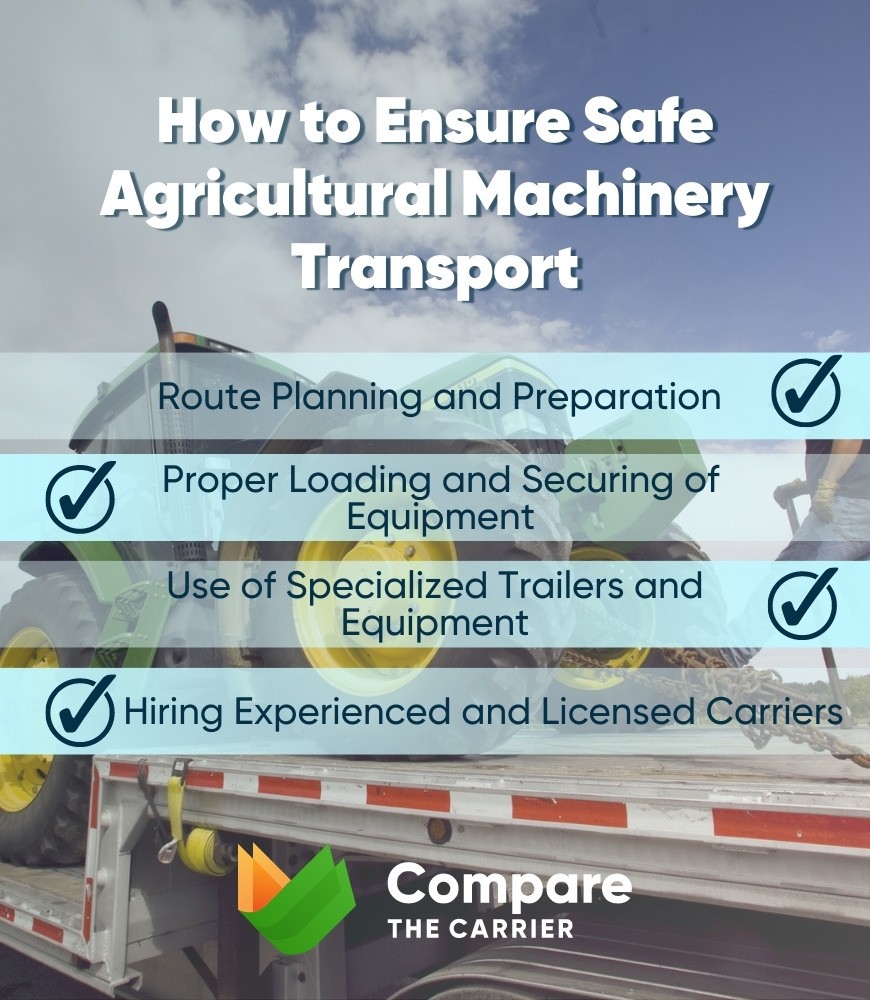
By adopting these strategies, you can ensure the safe and efficient transport of your farm equipment, minimizing accidents and optimizing profits.
Key Considerations when Choosing a Carrier for Rural Routes
Choosing an appropriate carrier for your farm equipment transport is crucial for a safe and efficient journey. Here are a few key factors to consider when selecting a carrier for rural routes:
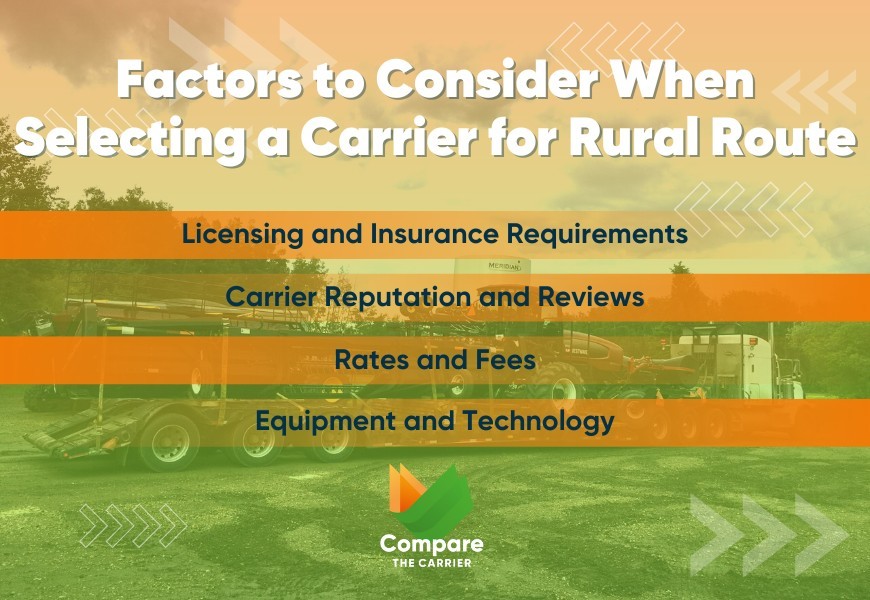
By considering these key factors when choosing a carrier for your farm equipment transport, you can ensure a journey that is safe, efficient, and cost-effective.
Transporting farm equipment through rural routes can be challenging, but with careful planning and the right strategies, it’s possible to ensure safety and efficiency. Choosing experienced carriers, considering their reputation, licensing, and equipment are crucial steps in this process.
Compare The Carrier comes in handy here. We connect you with the best, licensed transport companies, saving your time and money, and providing reliable solutions for all your farm equipment shipping needs. Let us help you navigate the complexities of rural routes machinery transportation, ensuring your valuable equipment is handled with care and professionalism.
FAQ
Is it legal to transport farm equipment on rural roads?
Yes, transporting farm equipment on rural roads is legal as long as the equipment is properly licensed and meets all relevant safety regulations.
Do I need a special license to transport farm equipment?
The requirements for transporting farm equipment vary depending on the state and type of equipment. In some cases, a commercial driver’s license (CDL) or other specialized license may be required.
What kind of insurance do I need for farm equipment transport?
It is important to have liability and cargo insurance to protect you in case of accidents or damage to the equipment during transport.
How often should I inspect my farm equipment before transport?
It is recommended to inspect your farm equipment before each transport to ensure that it is in good working condition and to identify any potential safety hazards.
What kind of specialized trailers are available for farm equipment transport?
There are several types of specialized trailers available for farm equipment transport, including lowboy trailers, flatbed trailers, and step deck trailers.
